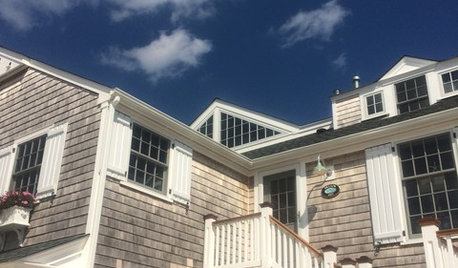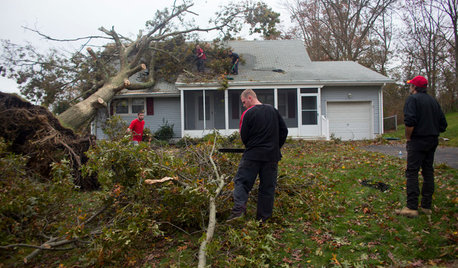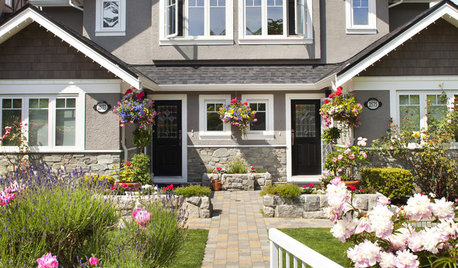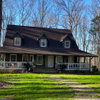Galveston residents may not be able to rebuild..Fair or foul?
qdognj
15 years ago
Related Stories

DISASTER PREP & RECOVERYHouzz Tour: Family Rebuilds Home and Community After Hurricane Sandy
This restored coastal New Jersey house — now raised 9 feet off the ground — offers inspiration for neighbors considering a return
Full Story
REMODELING GUIDESYou Won't Believe What These Homeowners Found in Their Walls
From the banal to the downright bizarre, these uncovered artifacts may get you wondering what may be hidden in your own home
Full Story
ARCHITECTUREDo These Surprising Contemporary Exteriors Hint at the Future?
Unconventional homes may someday be commonplace, thanks to more building choices than ever before
Full Story
MOST POPULARHow to Create an Inventory, Whether You're Naturally Organized or Not
Documenting your home items is essential, even if disaster seems unimaginable. And it may be easier than you think
Full Story
COMMUNITYDiscover the Joy of Welcoming New Neighbors
Don't worry about a perfect presentation — a heartfelt note and a simple treat create a wonderful welcome to the neighborhood
Full Story
MOST POPULARWhat to Do After a Hurricane or Flood
How you treat your home after a natural disaster can make all the difference in its future livability — and your own personal safety
Full Story
REMODELING GUIDES8 Remodeling Costs That Might Surprise You
Plan for these potential budget busters to keep a remodeling tab from escalating out of control
Full Story
BARN HOMESHouzz Tour: A Beautiful New Life for an 1860s Barn
The structure is moved from New York to Connecticut and renovated into a guesthouse and an entertainment space
Full Story
LIFECould You Be a Landlord?
Sure, the extra income would be great. But jumping blindly into owning a rental property could be disastrous. Here's what you need to know
Full StoryMore Discussions









cordovamom
triciae
Related Professionals
Gladstone Architects & Building Designers · New River Architects & Building Designers · Palos Verdes Estates Architects & Building Designers · Pooler General Contractors · Athens General Contractors · Beloit General Contractors · Gainesville General Contractors · Hayward General Contractors · Kyle General Contractors · Markham General Contractors · New Milford General Contractors · Plano General Contractors · Rock Island General Contractors · Sun Prairie General Contractors · Suisun City Interior Designers & DecoratorsqdognjOriginal Author
western_pa_luann
mfbenson
mariend
sweet_tea
artemis78
chisue
blueheron
canobeans
devorah
marys1000
triciae
qdognjOriginal Author
triciae
davidandkasie
chisue
sweet_tea
triciae
Susan
marys1000
chisue
david_cary
chisue
eastgate
rivkadr
housenewbie